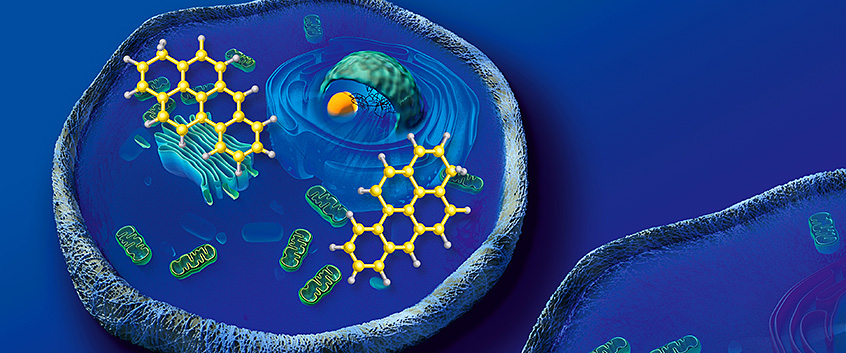
Department of Molecular Toxicology (MOLTOX)
How do environmental pollutants such as plastic additives affect living cells and what mechanisms do the cells use to control the response to exposure? And how do the different stages of regulation, from the initial molecular event to the changed appearance of the cell, interact and what interactions arise between different signaling pathways and regulatory mechanisms?
Since the majority of exposure occurs through food, it is particularly important how these substances affect the intestinal microbiome and its interaction with the host organism. Therefore, we also investigate the effects of exposure to chemicals on eukaryotic cell types and tissues in relation to their contribution to the development of chronic diseases.
Since we are interested in the effects of chemicals on chronic diseases of the immune system and the development of obesity, we focus on the effects in macrophages, adipocytes and their interaction (Working group Toxicoproteomics, headed by Kristin Schubert) and the effects on the intestinal microbiome (Working groups of Microbiome Biology and Functional Metabolomics, headed by Nico Jehmlich and Ulrike Rolle-Kampczyk, respectively). These two groups work closely together, as one has the expertise for cultivation techniques and metaproteomics expertise (Microbiome Biology) and the other for the particularly challenging analyzes of endogenous metabolites (Functional Metabolomics).
To determine the molecular responses of cells, bacteria or tissues to chemicals, we use methods that are useful for analysing cellular molecular responses, such as metabolomics and proteomics and others. For the interpretation we develop and apply bioinformatic approaches for evaluating multi-omics approaches. The Department of Molecular Toxicology, therefore, oversees the proteomics/metabolomics platform Prometheus. The colleagues in the department have expertise in analyzing the effects of chemicals such as plastic additives, pharmaceuticals, pesticides and other xenobiotics on immune cells, hepatocytes, adipocytes, lung cells, tissue cultures as well as cultures of individual bacteria and mixed cultures of bacteria.
